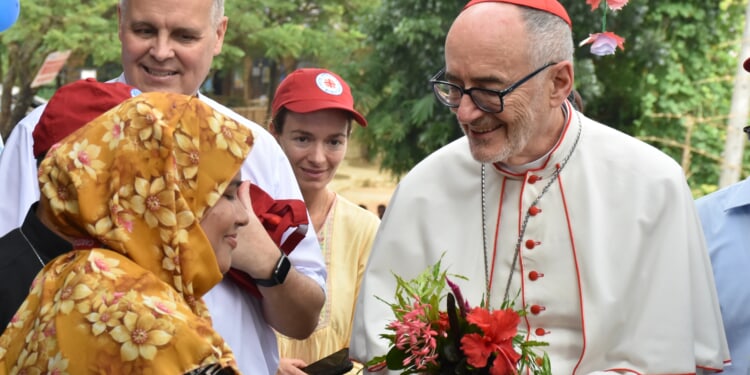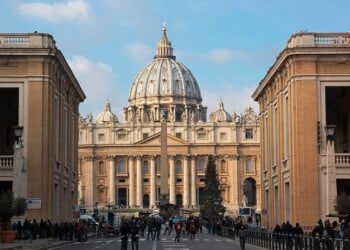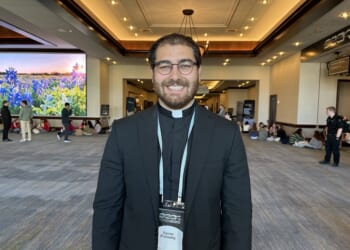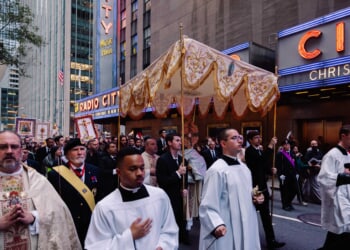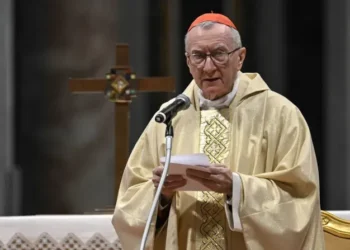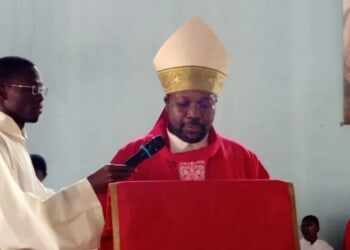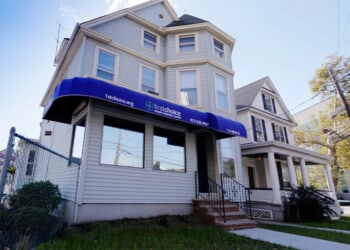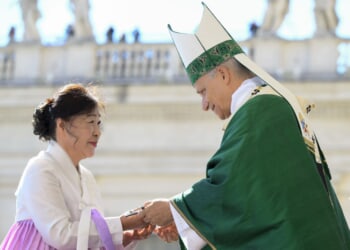Dhaka, Bangladesh, Nov 9, 2025 /
07:00 am
Cardinal Michael Czerny, SJ, prefect of the Dicastery for Promoting Integral Human Development, concluded a five-day pastoral visit with migrants and displaced Catholics under the theme “Raising Hope to Foster a Culture of Care.”
From Nov. 1–5, Czerny met with internally displaced Catholics near Dhaka and visited Rohingya in Cox’s Bazar, highlighting urgent issues of migration, poverty, and social justice.
Bangladesh hosts two vulnerable communities: approximately 50,000 internally displaced Catholics in Dhaka and Narayanganj, and nearly 1.1 million Rohingya refugees and migrants in Cox’s Bazar — considered the largest refugee camp in the world.
The visit sought to affirm the Church’s solidarity with these groups and encourage collaboration among Church leaders, government agencies, and humanitarian organizations.
Message of faith for displaced Catholics
On Nov. 2, Czerny celebrated Mass with more than 600 Catholics in Modonpur, Narayanganj, an industrial area where many migrants from rural Bangladesh live in precarious conditions. Many have fled their ancestral villages seeking better livelihoods, often working in factories under difficult circumstances.
“You are poor, but you gather to worship God,” Czerny told the faithful. “As you pray, God will answer your prayers. You will be blessed.”
For Sujon Das, 28, a machine operator originally from Thakurgaon, the encounter was deeply moving. “Cardinal Czerny admired us,” Das told CNA. “I had night duty on Nov. 3, but after work I joined the Mass. Normally we cannot attend Sunday Mass because we only get Fridays off — and sometimes we work even then.”
Das recalled a painful memory: “On Aug. 5, 2024, during political unrest, miscreants set fire to our church. Still, we keep our faith.” The violence occurred during widespread unrest following the resignation of Prime Minister Sheikh Hasina, which resulted in attacks on religious minorities across Bangladesh.
Father Ajit Victor Costa, who ministers regularly in Modonpur, explained why so many Catholics migrate to the area. “For existential reasons and better livelihood, they come to industrial zones seeking jobs,” he explained. “Most are landless and worked as day laborers in villages, earning very little. Migration continues, and many families remain separated.”
During his homily, Czerny praised those who serve migrants and refugees: “Communities that welcome migrants can be a living witness to hope — a promise of a present and future where the dignity of all as children of God is recognized.”
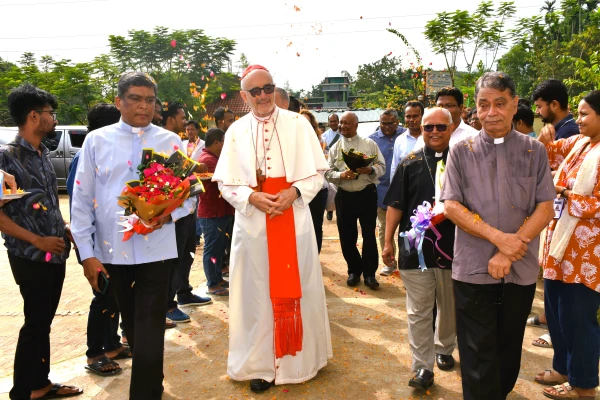
Solidarity with Rohingya
On Nov. 3, Czerny traveled to Cox’s Bazar to visit Rohingya who fled violence in Myanmar.
During a tour of Caritas Bangladesh’s humanitarian programs, he expressed concern about dwindling global support.
“The situation is very difficult, with funding cuts and less attention from the world,” Czerny said during his visit to the migrant camp. “The world should show more solidarity, not less. All organizations — Christian and others — must respond to real needs and continue to support those who suffer.”
(Story continues below)
Subscribe to our daily newsletter
Czerny assured them of the Church’s commitment. “I hope one day you can return safely to your homeland and live in peace and dignity,” he said.
Abdul Rahman (not his real name), 55, a Rohingya refugee, voiced gratitude. “Caritas Bangladesh stands with us, offering love and care — clean water, sanitation, shelter, and hope,” Rahman said. “Even when the world forgets, Caritas remains close.”
CNA is using pseudonyms for Rohingya refugees at their request for security reasons.
Children welcomed the visitor from the Vatican with songs and drawings. “Please help us with more play and learning materials,” said Mohammad Nur (not his real name). Czerny called their joy “a sign of hope and life that inspires us all to keep serving with compassion.”
Justice and peace at the heart of mission
On Nov. 4 in Dhaka, Czerny inaugurated the 50th anniversary of the Episcopal Commission for Justice and Peace of Bangladesh, praising its work on human rights, child protection, climate change, migration, and anti-trafficking efforts.
He also visited children in drug rehabilitation centers, orphanages, and migrant shelters. “The care you receive is good,” he told them, “but think also about what kind of service you can offer to others.”
At a press conference later that day, Czerny reflected on the challenges facing both communities. “For those in the camps, being stateless, unemployed, and confined for years is intolerable,” he said. “The international community has not been able to provide a solution to the Rohingya crisis, and that needs to change.”
Call to action
Czerny’s visit underscored the Church’s mission to accompany those on the margins.
“The Holy Spirit sends us to others,” he reminded the faithful. “The care you bring to migrants and refugees is a trace of the Spirit — a sign of salvation and hope.”
Archbishop Bejoy N. D’Cruze of Dhaka, president of the Catholic Bishops’ Conference of Bangladesh, expressed his gratitude to Czerny for the pastoral visit.
“I am confident that this visit will be a blessing for the Catholic Church in Bangladesh,” D’Cruze said. “I believe it will further inspire and strengthen our commitment to inclusive human development.”

